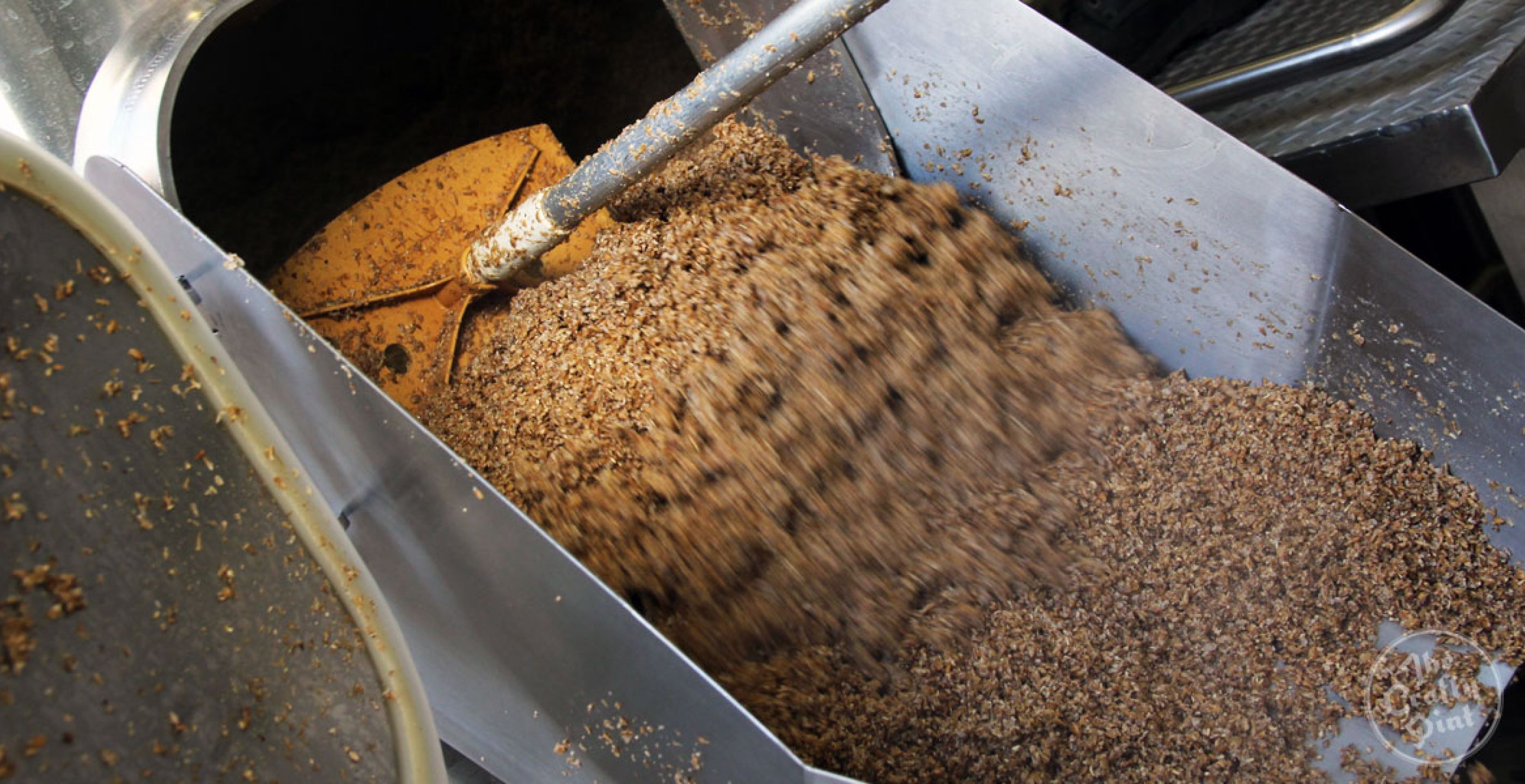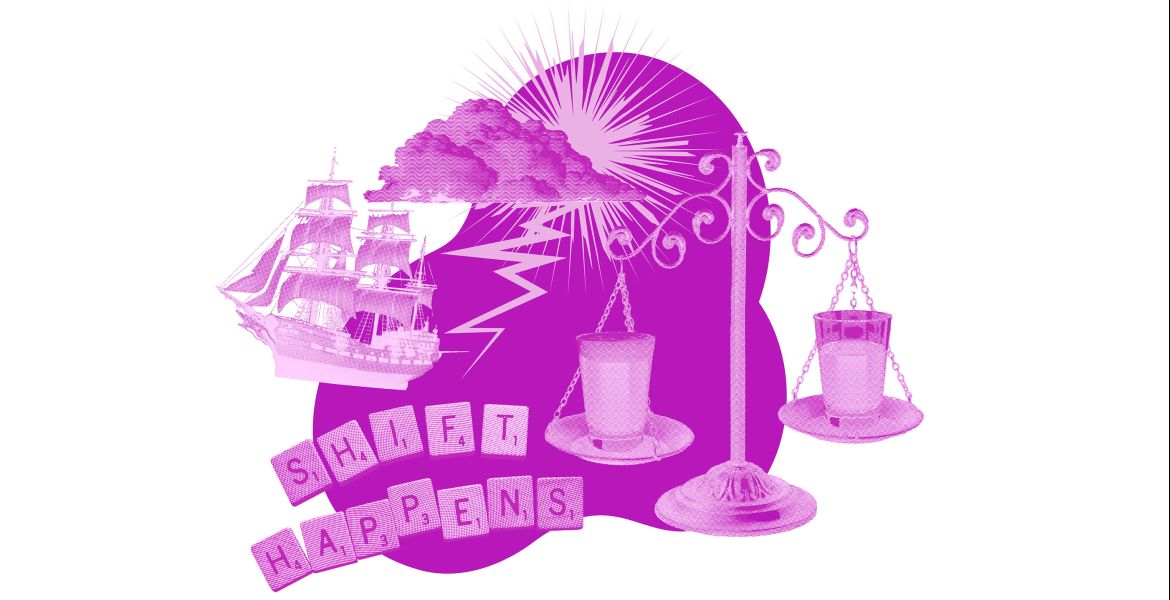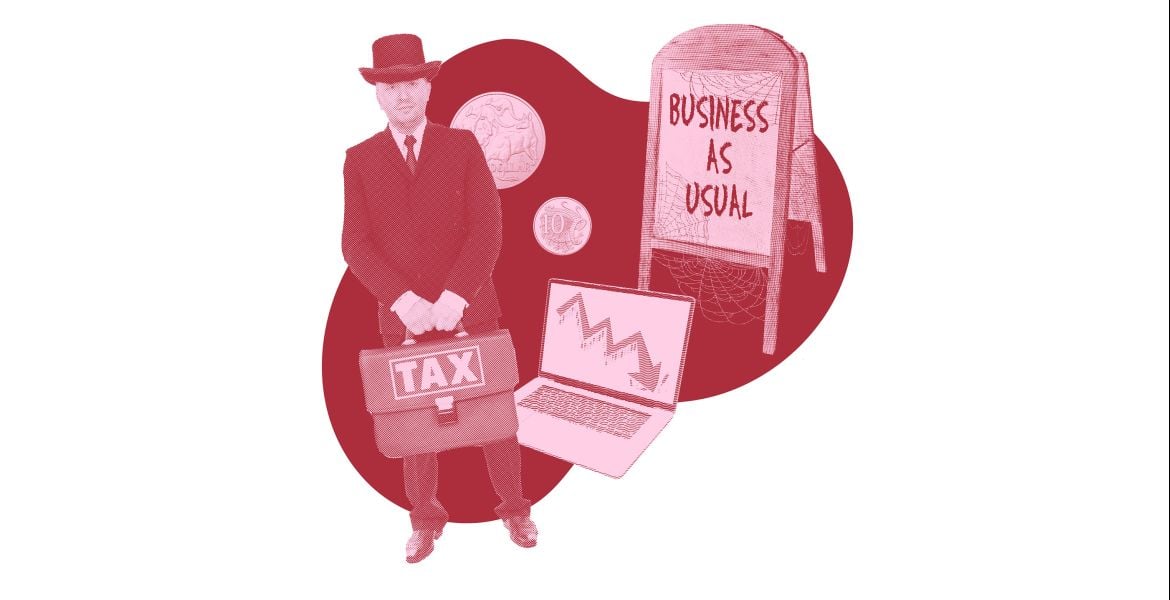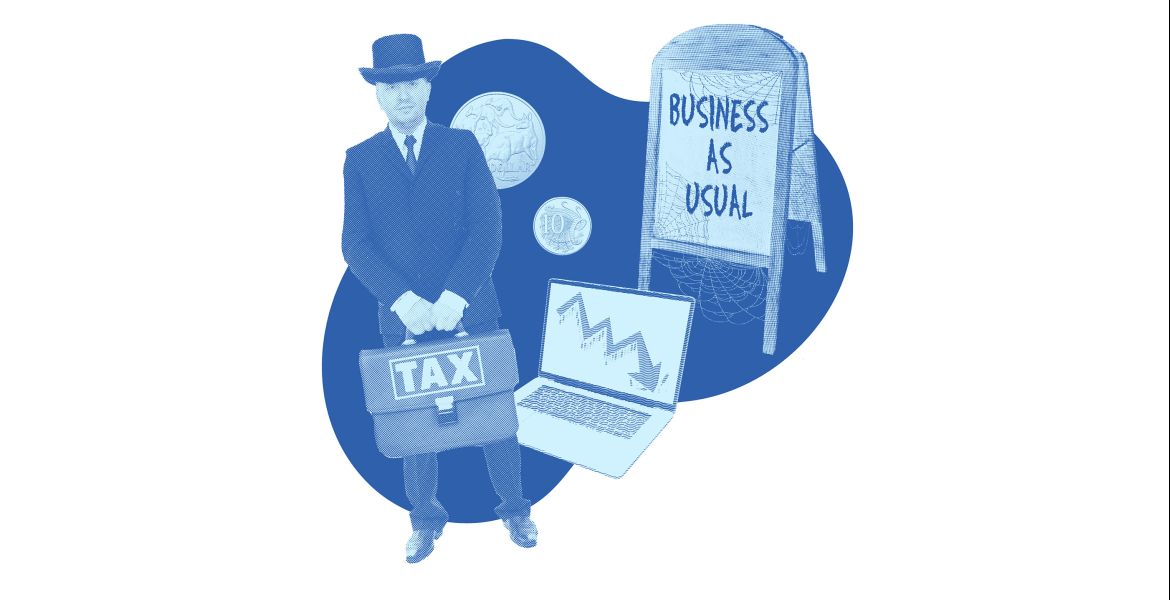The agreed line is that craft beer is a resoundingly good thing. And that working in the industry means you're the luckiest person alive. Yet what happens when someone's goodwill or eagerness to be part of it is exploited beyond all reasonable limits?
Here, Kerry McBride peers beneath the veneer of the industry and finds examples of employers pushing their staff – or volunteers – beyond breaking point and asks what people can do if their craft beer dream starts turning sour.
“The idea that good people buy good beer is absolute bullshit. It’s like saying good people buy vinyl – it means nothing. In my experience the beer industry attracts an equal number of assholes, if not more.”
In an industry that thrives on relationships and shared passion, "beer people are good people" is a phrase often heard, and examples are easy enough to find. Breweries collaborate, sales reps become friends, customers and fans happily support numerous brands from across the beer spectrum.
Yet, for some who try to build a life in the craft beer industry, that narrative is quickly lost as they find themselves at the will of employers cutting corners, underpaying staff or intimidating them into staying quiet about unethical or even illegal treatment of employees.
Brian* has been in beer for more than ten years. In that time, he has been denied his superannuation, worked 80-plus hour weeks with no overtime and seen people fired in front of him.
While his first experiences were mainly positive, with beer education and training a regular part of his day to day job, things began to shift when he took a role interstate to help set up a venue. He was expecting to run the venue, but ended up effectively working as a building labourer. For Brian, the correlation between good people and good beer holds little weight.
Brian packed up his life and moved away from home. But, soon after taking up the role, he was put in the position of having to fire people – a task he had been given next to no warning about.
“During this, salary payments weren’t being made on time and my average working week would have been upwards of about 80 hours. We were the cleaners in the morning at 6am through to closing the bar at midnight.”
Brian stuck it out for six months while other staff were fired around him. Job roles were changed at a moment’s notice and he was soon doing more labouring work than venue management.
“There were times out there that I was behaving like an alcoholic. I had to drink just to get myself to sleep.”
Eventually, he too found himself out of a job and moved back to his home state. Other jobs followed, and similar issues returned, with long work hours and inconsistent pay packets a regular occurrence.
When he landed a job selling beer, there was no formal contract offered. Instead, his new career path was agreed off the back of an email. Bonuses were promised and not delivered, superannuation went unpaid for an entire year, and staff were fired when there wasn’t enough stock to be sold.
One of Brian’s workmates was forced to sign an exit contract with conditions about non-competitive behaviour when taking another job, despite never signing an employment contract in the first place. They were told that if they wanted their leave paid out they would have to sign the contract.
“This was intimidation and passive aggression," he says, "and this was the kind of stuff we all had to put up with to work in craft beer.”
For Jacob*, the lure of working for an exciting brewery is familiar. He had landed a job with an up and coming brewery that was winning awards and accolades for its beers. Getting the job had been a huge victory for him, but it quickly soured as the management team made their will known.
“My contract was for 40 hours, but I don’t think there was one week in my 11 months there where I worked less than 45-50 hours, with no extra compensation. But you do it because you love the beer and you’re stoked to be in the industry.
“They wouldn’t hire anyone else to help me, and I wanted to do the job I signed up for and wanted to do it well. But I pretty much ran myself into the ground. I was buying shirts on the way to work to wear that day because I didn’t have time to wash all my clothes. It was pretty grim.”
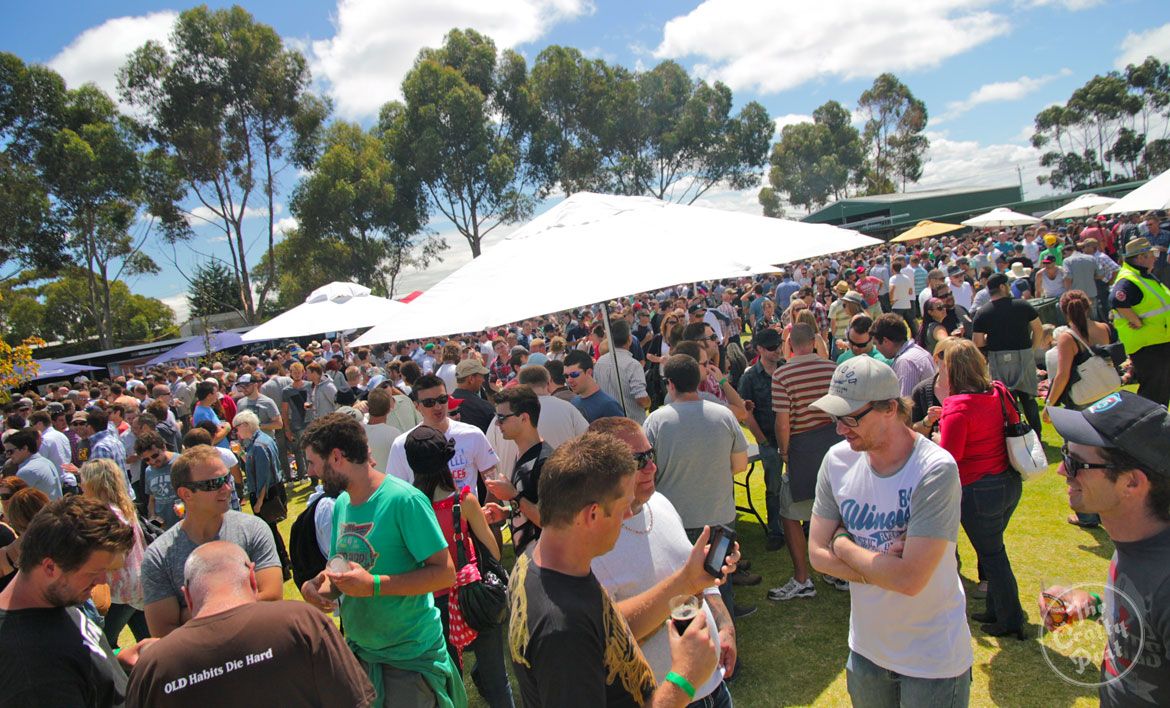
Despite raising concerns with his manager and asking for occasional lieu hours for Friday night tastings, there was no flexibility. Jacob’s fellow workmates were under similar conditions and, he says, probably still are.
“I couldn’t speak to anyone because it was about the bosses. Not even my immediate superior, because he was being driven into the ground by the same people.
“One week near the end of my employment, I’d worked 44 hours by the end of Wednesday. I called up one of the directors and said I couldn’t come in the next day because I was just wrecked. He said no and that I’d be expected there at 9am. I refused and it became a real issue.”
After almost a year, Jacob gave four weeks' notice to his manager, who handled it well. But the next day, management sat him down.
“It was as if there was something wrong with me for quitting, rather than him seeing there was anything wrong with his business or his attitude towards his employees.
“That was really hard to hear because I knew there was nothing wrong with me, and there was everything wrong with the way he treated his staff.”
Jacob is now happy working elsewhere in the beer industry. But his time at the brewery had a real effect on him mentally.
“I was pretty miserable. I didn’t have any relationships over that time. I didn’t feel I could give anything. I kind of neglected my family, my parents and my brother. It was pretty shit.”
Moving on from the brewery that seemed so promising was a difficult call to make, but for Jacob it was an essential one.
“We’ve all got things we want to achieve in this industry, but sometimes you have to decide whether your sanity and your health is the priority or if it’s your career.”
Yet, given how many people are desperate to get a toehold in the fast-growing and exciting craft beer industry, should the likes of Jacob accept their lot and be thankful for the opportunities that may lie ahead?
After all, people looking to crack into the beer industry are often advised to volunteer their time on packaging lines or slinging beers at festivals for breweries; it offers a first taste of the industry and can be an effective way to make the right connections.

However, a spokesman for the Fair Work Ombudsman warns businesses against extended use of free labour outside the bounds of “legitimate learning programs and vocational placements”.
“Employers should not use unpaid work schemes, such as work experience, trials or internships, as a source of free labour to avoid paying employee entitlements.
“Where a worker is an employee, they must be paid for their work at the applicable minimum rate.”
Under Australian law, people who work on a packaging line for a brewery are covered under the Food, Beverage and Tobacco Manufacturing Award 2010 and are entitled to minimum standards. Similarly, people who work at beer festivals and events can be covered by the either the General Retail Industry Award 2010 or the Hospitality Industry (General) Award 2010, depending on the type of work performed.
Craft Beer Industry Association (CBIA) Executive Officer Chris McNamara recommends that all craft breweries seek independent advice to ensure they are fulfilling their legal obligations, including for casual workers or volunteers on the brewery floor or at festivals.
“As employers, craft brewers have legal obligations, and that should be enough for them to want to fulfil those obligations,” he says.
“We would suggest that any employees out there who think they are not being treated fairly or are being exploited should contact the Fair Work Ombudsman, which has the power to step in and investigate the issues that might occur.”
While the CBIA had not been alerted to any individual incidents at breweries that were cause for concern, every brewery should ensure their business practices are sound, and effectively looking after all their staff, regardless of their position, says Chris.
“Our belief is that, if you can’t afford to take all necessary steps to ensure the safety of the brewery employees, then the brewery shouldn’t be open. It should be a top priority for everyone who walks into a brewery.
“We haven’t had a death in the industry yet, and that’s the way we want to keep it."
Yet, for some, offering up a few hours at the brewery remains the best route in to the industry. Former office worker Sam* was looking for a change of scenery a few years ago and began contacting breweries near his newly adopted suburb.
He did a few shifts at various breweries cleaning kegs, packaging and keeping the floor clean, before settling in to work some casual hours at the brewery closest to his house.
In time, he was doing enough hours to leave behind his desk job and worked his way up to three days a week, while also pulling pints at a local venue. Hours were long, pay was low, but it was a foot in the door.
It seemed to Sam that the only way to keep that door open was to say yes to any request that came along, no matter how demanding.
“You’re asked to do long hours, you’re asked to sacrifice things, and the nature of it is that it’s just expected,” he says. “For someone who’s new in the industry, at the start you can never say no to anything.
“I didn’t have a permanent contract for the first four years of working for the company.”
Within those four years, Sam cemented himself in the team and began work as a sales rep for the brewery while still looking after logistics and brewery management. It was a hard slog with, he felt, little respect or thanks from management. So, when a new management team came in, Sam hoped things would improve.
“You get your hopes built up when new people come in that things might change for the better. But it ended up being an even worse management style, with much poorer direction for the brewery.
“I was treated very poorly, with absolute scepticism. When you’re working for a small brewery, even if you’re in sales you end up doing so many different things. You might be doing the production schedules, or helping with logistics by unloading pallets, you might be training new staff. You’re doing everything.
“But, the more you do, the less defined your role is. I was treated very poorly, almost with contempt. The new guys didn’t want me there and didn’t understand what I did.”
Things continued in a downward spiral, with no sign of a full-time contract landing in Sam’s inbox.
“I was working 80 hours a week across two jobs so I could stay involved in the beer industry. I was doing back-to-back 16 hour days. Every working day was ten hours or longer. I was so desperate to stay in the industry that I just did it. I was on $20 an hour, even after three years at the brewery.
“My relationship fell apart, I suffered from depression and from really bad anxiety. It got to the point that I was suicidal. I just hated everything and wanted to go home, but couldn’t see a way out.”
Yet, all the while, the messages coming from outside the beer world continued telling Sam he must have the best job in the world.
“I think you get lost in everybody telling you how good your job is,” Sam says.
“Everyone tells you you’re so lucky to work in craft beer, but there’s no luck about it. You work hard and you grind it out, and a lot of the time you don’t get anything for it. It jades people.”
At this point, it’s worth pointing out that for many in the industry – including those at the very top of the game – hard work and wearing many different hats is very much part of what's required and success doesn’t come without it. Margins are small and it’s a congested marketplace.
Yet, while many will accept that some hardship is to be expected – and figure that, on balance, a life making or selling beer more than compensates for long hours or low pay, at least for a time – there is always a limit. And, when one of craft beer’s selling points is that it is “better”, higher standards surely should apply to more than just the liquid: they should be high across the board.
“Most of us in this industry are good people,” says Sam. “We’re in it for the love of it. But breweries can do anything they want because, a lot of the time, people starting out are working for people who have high profiles or are really respected in the industry.
“You can’t speak out because it could end your career. If you’re working for a well-respected brewery or brewer, but go out and tell people the truth, then you’re probably not going to be able to work. You won’t get another job.”
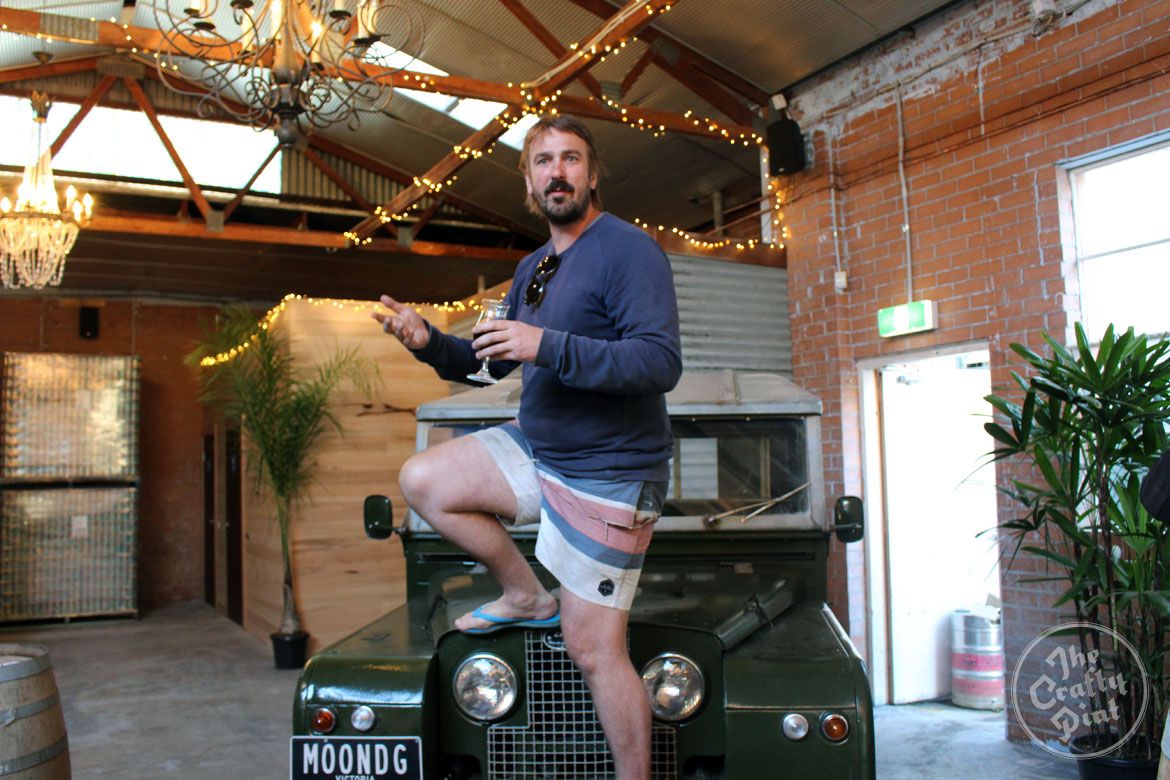
Moon Dog co-founder Josh Uljans says he has ensured his staff have been paid correctly since launching the business and sees the Moon Dog staff as a central part of the brewery’s success.
“When we started out, it was just the three of us working 80 hour weeks for no pay, but that was our choice and necessary to get the brewery off the ground,” he says.
“We have always been of the opinion that people get paid for the work they do for us. We have consciously never dangled the carrot by saying, ‘If you do this work for us, we’ll give you a job’.”
They have used volunteers, as do, for example, many of the country’s major events (many of whom return, delighted to do so, year after year), but the owners have ensured Moon Dog employees are paid award rates as a minimum.
“We haven’t built a business off the back of people doing work for free,” says Josh. “The people who work for us are the most important part of the business and are remunerated accordingly. It’s a cost of doing business, but we see it as a positive thing to have wonderful people working for us.
“There’s a real sense of pride that we provide the livelihoods of 20-something people – it’s one of the nice things about becoming an employer.”
For people trying to find a beer business that provides both a positive work environment and that all-important experience, Josh says it’s advisable to try and learn about the company’s culture before signing on the dotted line.
“I think quite often the culture in an organisation is pretty evident from the outside. There are some places you just get a sense that staff aren’t happy, and it’s often clear from the outset.
“Value your worth and understand what your rights are. As awesome as it is to get into this industry, in the long run if you’re feeling you’re being exploited or not looked after, it’ll taint your view of the whole industry, so it has to be the right opportunity.”
In some cases, it takes a well-meaning word from a friend.
Aaron’s* job at a brewery started with a handshake and a quick email, but it soon became clear all was not as planned. His sales job and all that went with it was purely commission based, meaning whenever a tap point was lost, a delivery didn’t get made or a run of beer was released late his bank account took the hit.
“It wasn’t until I started asking industry mates a few questions,” he says, “that I realised I was really getting shafted…
“It was extremely stressful, because anything that screwed up – even if it was above my pay grade – became my problem. It all had that flow on effect into my salary.”
Day to day, the staff were told to just “get it done", with any concerns dismissed by the brewery owners and the threat of getting fired never far from their minds.
“It was a culture where we were all being treated like shit, but the first person who spoke out about it got fired the same day for a completely stupid reason.”
Despite the challenges faced by the employees we spoke to for this article, all have remained remarkably positive about the beer industry as a whole. They’ve adopted different techniques when looking for work – and made sure contracts are read carefully.
The way Brian sees it, choosing a brewery based on a love of the beer should be a bare minimum. You may need to test things out at the beginning without pay, but it should be your choice to do so.
“If you want to crack into the industry, go volunteer your time for your favourite brewery at a festival,” he says.
“Opt in and give up a couple of hours of your time to see if you like the way they do business. Give them four hours and see how they treat you. In a way, you choose how you’re exploited.”
Ask around and see what experiences – good and bad – others have had. Some breweries, such as Melbourne’s Mountain Goat, offer staff incentives such as extra pay for hosting brewery tours, while others offer time off for family events that fall during work time.
Outside of volunteering, applying for even a part-time job pulling pints at the brewery or sweeping floors can get you one step closer, without having to forgo a wage. Taking brewing courses or increasing sales experience through part-time work can also help bolster skill sets for those targeting beer as a career.
Speaking with industry peers, or those who’ve made the move into beer before you, can provide crucial insights into individual businesses and the standards that can be expected. For Aaron, it was this that helped make him realise he needed to move on.
“Having chats with people reminded me that this is not what craft beer is about,” he says.
“When you’re in the bubble of just getting it all done no matter what, you just do it. But coming out of that situation, it was like going from black and white TV to colour: This is what it’s meant to be like. The sky is blue.”
*Some of the names in the article have been changed to protect contributors' identities and also those of the businesses involved. If you wish to comment on this article, please refrain from naming or identifying businesses. The aim here is to raise an issue for discussion, not point fingers.
You can contact the author here.
Comment
It's a line from Brian that perhaps gets to the root of the matter best: "You choose how you’re exploited."
In the beer world, like any industry where many people are keen to get a start and competition can be fierce, work experience, volunteering, whatever you like to call it, can be an important way to gain experience and make contacts. Similarly, when starting out in any job, one can expect to take the brunt of the jobs no one else wants to do; read the Brew & A features on this site and many brewers allude to the less pleasant sides of their job – before concluding that it's worth it.
The team that built Good Beer Week, including the founder of this site, worked for almost three years unpaid to build the event, some committing six months of each year to the project because we believed in what we were doing. Going back further, I worked unpaid and long hours at a newspaper for four weeks, refusing to go away, before being called into the editor's office and landing a first job in journalism. But, in each case, we chose to do this – to be exploited by ourselves, in a sense – and suffer the stresses that came with it.
But, if a situation moves beyond of an individual's control, or develops a darker side, it's important for people on both sides – the person suffering from real or imagined exploitation and the employer who may not even be aware they're overstepping the mark – to know where they stand, what their rights are and where to turn when too much becomes too much.
Editor
External links
You can read past Big Issue features here.





